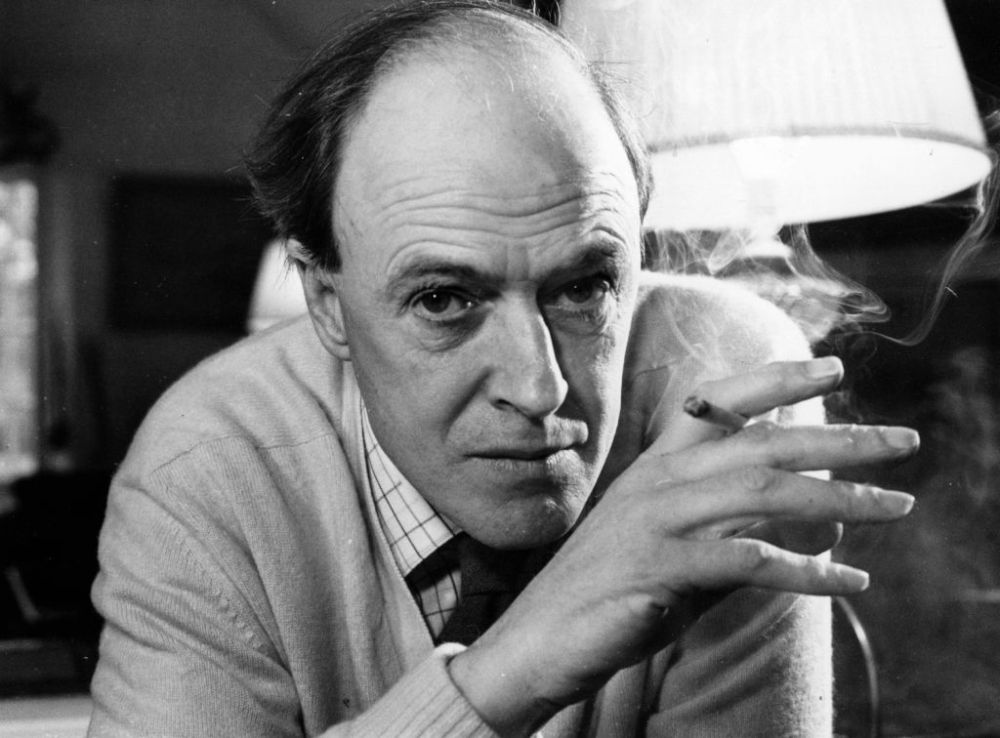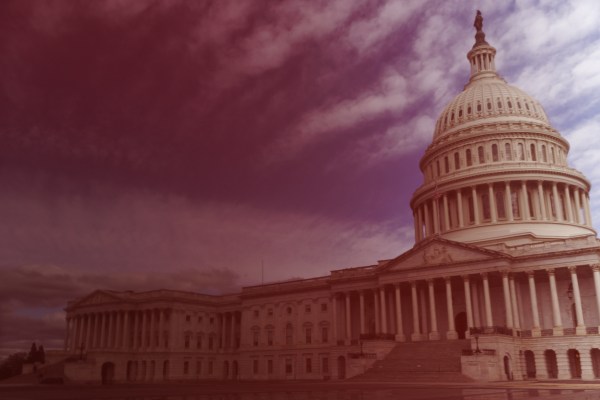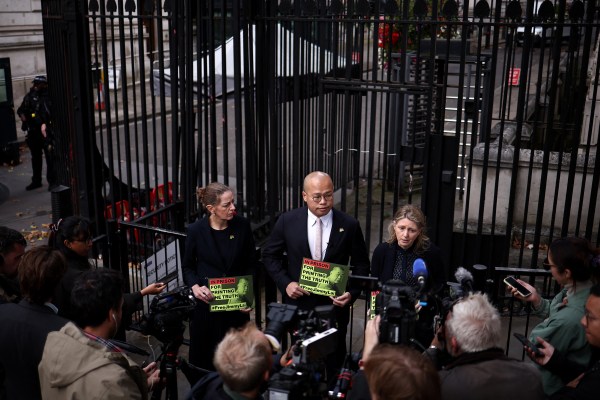You can find people online who approve of rewriting Roald Dahl’s works to remove the “insensitive” bits—you can find people online who approve of anything—but you’ll need to look harder than you might expect.
Conservatives detest the idea, of course, but liberals on social media to whom I pay attention also dislike it almost uniformly. “This is very stupid,” tweeted Adam Serwer of The Atlantic about the project. “Aside from altering the meaning and nature of the work in question, part of learning is understanding [the] context of the piece and when it was written.” His comment reflects the left-wing consensus as far as I can tell.
What if they gave a culture war and nobody came?
If you’re of a certain age and tend to think of Mark Twain’s use of the N-word in Huckleberry Finn when the topic of censoring the classics comes up, let this story serve notice that the bar for what qualifies as insensitive in 2023 has dropped considerably. The Daily Telegraph detailed some of the changes being planned for Dahl’s works.
The word “fat” has been removed from every book - Augustus Gloop in Charlie and the Chocolate Factory may still look like a ball of dough, but can now only be described as “enormous”.
In the same story, the Oompa-Loompas are no longer “tiny”, “titchy” or “no higher than my knee” but merely small. And where once they were “small men”, they are now “small people”.
…
“Boys and girls” has been turned into “children”. The Cloud-Men in James and the Giant Peach have become Cloud-People and Fantastic Mr Fox’s three sons have become daughters.
When the title character in Matilda reads a book, she’ll read Jane Austen from now on instead of Rudyard Kipling. (Whether Kipling was deemed haram because he was a colonialist or simply an Old Dead White Guy is unclear.) In some spots the redactions involve more than swapping out single words or phrases: The new edition of The Witches, in which the title characters wear wigs, adds a line to make clear that “there is certainly nothing wrong with” using a hairpiece to obscure one’s baldness.
The outfit behind these alterations has the delightfully Orwellian name “Inclusive Minds.”
If Dahl’s works were in the public domain, all of this would be grim, entertaining, and not very troublesome. (Much like a Roald Dahl story.) Everyone is free to do what they like with a work whose copyright has lapsed, as the estate of A.A. Milne was recently reminded. Some publishers would continue to publish Dahl’s works as written, others like Inclusive Minds would offer redacted versions that baldies like me could read without fear of dissolving into tears.
But Dahl’s books aren’t in the public domain. They’re still under copyright. That’s where this gets complicated.
You’ll rarely go wrong trusting Salman Rushdie’s instincts on art and speech.
His is the consensus view in this case. But the word “censorship” lands awkwardly because Roald Dahl is being censored by … “Roald Dahl.” It was Dahl’s publisher and the Netflix subsidiary that owns the rights to his works that retained Inclusive Minds to woke-ify those works for a new and more easily offended generation. His legal successors, not some meddling government agency, are behind the alterations.
If you own intellectual property, don’t you have the right to deface it? And shouldn’t you have the right to make that defaced version definitive by ceasing publication of the “insensitive” version if you choose, particularly if doing so might earn you an extra buck?
To the extent there’s a faction in this debate that favors bowdlerization, that’s their argument: It’s called “capitalism,” sucka. Maybe Netflix conducted market research showing that parents would be marginally more likely to buy Dahl’s books if certain “problematic” concepts were removed, so they removed those concepts. It wouldn’t be the first time a manufacturer has revamped a product to make it more salable.
But books aren’t any ol’ product, are they? Art is different.
Some countries formally recognize that art is different by granting an artist “moral rights” in the works they’ve created even after the property rights in those works have been sold. If you purchase an author’s copyright, you’re free to reproduce his work and to profit from doing so—but you can’t deny him proper attribution as the author and you can’t alter the work in a “derogatory” way that might damage his reputation. “Moral rights” function as a sort of warranty that a work accurately reflects the artistic vision of its creator(s); if you deface the work or credit someone else falsely with having produced it, you’ve breached that warranty. Even if you own the copyright.
The extent to which moral rights might legally protect a dead author from his own successors is above my pay grade but it’s plain as day how the moral intuition behind the concept applies to Dahl’s case. If you’re reading a bowdlerized version of Matilda, you’re not reading Roald Dahl; you’re reading Roald Dahl as abridged by Inclusive Minds. If the book appears with only Dahl’s name on the cover, it’s nothing more or less than false advertising. It’s not his work.
The warranty has been breached.
One might counter that the alterations in Dahl’s case aren’t “derogatory” because removing the insensitive parts improves his reputation rather than damages it. But derogation is in the eye of the beholder. To some, replacing “fat” with “enormous” makes Dahl seem more compassionate to the husky and big-boned communities. (I don’t see how, but that’s why I don’t work at Inclusive Minds.) To others, like Helen Lewis, those substitutions dilute the current of casual mean-spiritedness in Dahl’s work that makes him so oddly compelling as a children’s author. “Roald Dahl without nastiness is not Roald Dahl,” she writes. “His cold, unsettling spikiness is his defining quality as a writer.”
Stripping an author of his magic for the sake of turning him into a didactic if well-meaning bore would qualify as derogatory in any court that has me as a judge.
Here’s where we hit another bump, though. What if Dahl were still alive and wanted to revise his own works himself? If he were to conclude with the benefit of hindsight that his artistic vision now requires saying “enormous” instead of “fat”—or that he can move more books by doing so, at least—would those of us criticizing Inclusive Minds today have grounds to object?
Imagine that J.K. Rowling finally bowed to the progressives who keep hounding her for rejecting trans dogma by announcing that she’ll revamp her master work. “Harry Potter” is dead; henceforth reprints of the series will feature a nonbinary hero named “Harriet Potter” juggling classes at Hogwarts, threats from Voldemort, and hormone therapy as part of her transition. Would “Harry Potter” fans greet this bold new vision from their favorite artist warmly or would they resent the revisions?
I think the resentment would be ferocious. And not (just) because Rowling capitulated to her critics or gave her main character an untraditional identity.
Dahl’s and Rowling’s works are literary touchstones. They’re part of a common cultural vernacular that reaches across the English-speaking world. And because they’re children’s authors, most who cherish their books first came to them during their formative years.
They’ve shaped the popular imagination. They “belong” to all of us, sort of, as a shared memory. So the public resents it when “particular sensibilities” with political motives try to claw them back and substitute something more to their liking.
Rewriting Dahl isn’t just rewriting Dahl, in other words, it’s a bid to rewrite the history of the culture that produced him and his fans. There’s an element of statue-smashing to it. People get understandably defensive when revisionists take up their hammers or red pens, especially when the sins they’re hoping to expunge are only debatably sins.
For all the self-serving hype about “capitalism” and boosting Dahl’s appeal to a woke new generation, it’s unclear how many parents or children are actually asking for the updates made by Inclusive Minds. In one book, for instance, a black coat will no longer be identified as black and characters who turn “white with fear” will be described otherwise. You don’t make changes as petty and nonsensical as that because you’re worried that the average joe will revolt if you don’t. You make those changes after you’ve grandly and quite self-consciously decided to embrace “sensitivity” and need to justify the undertaking by upgrading every glancingly “problematic” turn of phrase you can find.
Lewis sees this for what it is. “The sheer weight of the Dahl edits reveals a kind of corporate safetyism: This might offend someone, so why take the risk?”
Let’s not be cute about it: Sensitivity readers, including those at the company that edited the Dahl books, are a newly created class of censors, a priesthood of offense diviners.
…
Dahl staggers on, embarrassing the cultural gatekeepers by remaining popular despite being so thoroughly out of tune with the times. The work does so because of the dirty secret that children, and adults, like nastiness. They enjoy fat aunts and pranked teachers and the thrilling but illegal doping of pheasants. Today’s corporations want to have it all, though. They want the selling power of an author like Roald Dahl, shorn of the discomforting qualities that made him a best seller. They want things to be simple—a quality that we might call childlike, if Dahl hadn’t shown us that children can be so much more.
Dahl is being bowdlerized not because his audience is dropping off but because it isn’t. The public, in its alleged vulgarity and ignorance, continues to seek out and enjoy his original works. And so the cultural gatekeepers Lewis describes have turned to an alternative strategy to depress the market: If they can’t limit the demand for “insensitivity,” they’ll limit the supply.
They might have managed to grow into well-adjusted adults despite loving his books as children, but you? You need extra guardrails.
Insofar as there’s a capitalist motive here to move more books, my cynical heart wonders if it’s all part of an ingenious scheme to goose interest in the uncensored Dahl. Want consumers to clamor for Coke? Yank it off the market, give ‘em New Coke instead, then wait for artificial scarcity to work its magic. When you finally bring it back, you won’t be able to keep it on the shelves.
The most suspicious thing about this episode is that there are obviously better ways to handle insensitivity in older works than by treating it like a commissar in a photo with Stalin who later fell into disfavor.
Dahl’s publisher could slap a foreword on his books that supplies historical context to help guide delicate readers through the sketchy parts. “Once upon a time, in a less enlightened era, overweight people were described as ‘fat’ rather than ‘enormous.’”
In cases of extreme insensitivity, you might produce an edition of the original work that’s fully annotated with corrections and commentary. I, for one, am glad that the German reissue of Mein Kampf took that approach instead of adding passages that say, “Actually, Jews are wonderful.”
If the goal in all of this really is to make an extra buck, Dahl’s publisher could simply offer two versions of his works. One would be the uncut originals written by the author himself, the other would be the new and more “inclusive” bowdlerized editions—clearly labeled as “adaptations.” Most people would buy the former, extreme wokesters would buy the latter, and some superfans would buy both to ensure that their collections are complete.
Or, I suppose, people offended by Dahl’s works—assuming there actually are any—could … write their own children’s books, maybe? Those shrieking “capitalism!” as a defense to bowdlerization should be thrilled to know that they too can make a ginormous fortune by producing works of literature for children that aren’t full of smut about black coats and people turning white with fear. All they need to do is outcompete Roald Dahl and J.K. Rowling by writing better, more popular material. Good luck, fellas.







Please note that we at The Dispatch hold ourselves, our work, and our commenters to a higher standard than other places on the internet. We welcome comments that foster genuine debate or discussion—including comments critical of us or our work—but responses that include ad hominem attacks on fellow Dispatch members or are intended to stoke fear and anger may be moderated.
With your membership, you only have the ability to comment on The Morning Dispatch articles. Consider upgrading to join the conversation everywhere.